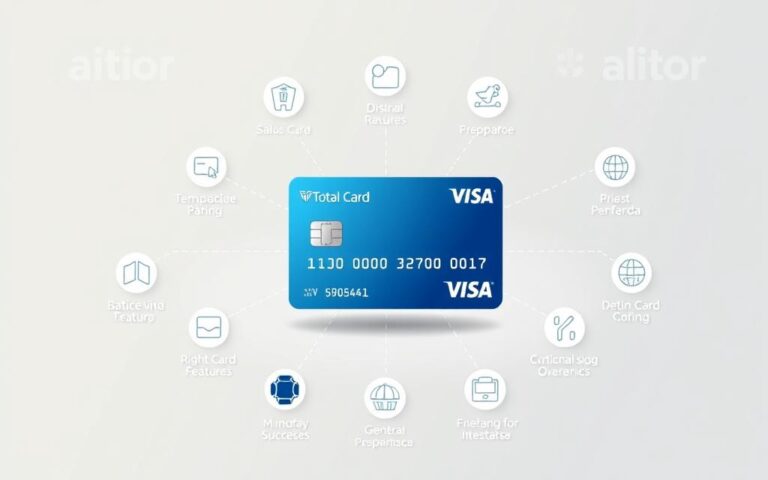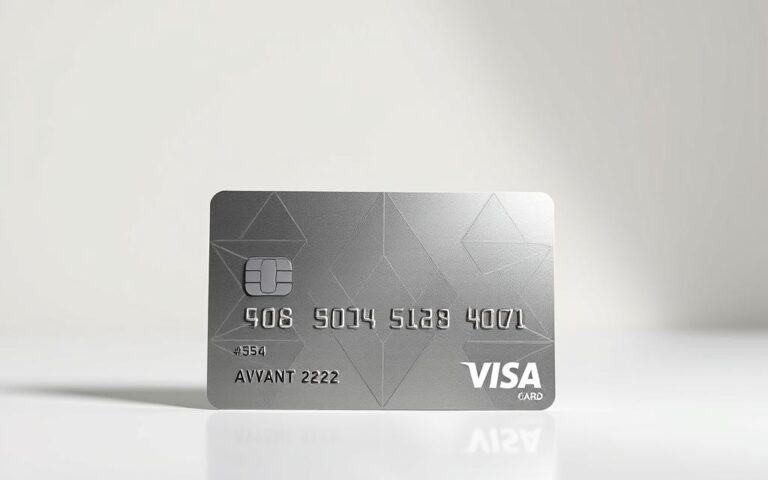Advertisement
Credit unions usually have lower loan rates and higher returns on deposits than big banks. This is because they are not-for-profit and owned by members. People looking for bank alternatives find credit unions more attractive in 2024.
Credit unions offer personalized service, competitive loans, and strong community support. They focus on members’ benefits rather than making profits for shareholders. This means you get better rates and fewer fees.
Joining a credit union could lead to better financial health thanks to higher APY on savings. Institutions like Navy Federal Credit Union and Canopy Credit Union focus on community and financial wellness. They could be your best choice for banking differently.
What is a Credit Union?
Credit unions offer a unique approach to managing your money. They are owned by their members, not investors. This means they focus on giving back to their members, not making profits. Joining a credit union means you’re part of a community that cares about your financial health.
Understanding the Basics
Credit unions aim to provide top-notch financial services. They offer better interest rates on savings and loans compared to traditional banks. For example, saving accounts at credit unions earn about 0.21%, while banks offer 0.34%. They also have great rates on other financial products. Their not-for-profit nature lets them offer lower fees and better rates. This makes them a great choice for anyone looking to save money.
Differences Between Credit Unions and Banks
Credit unions and banks serve different purposes. Banks aim to make profits for their shareholders. Credit unions, however, put their members first. This leads to several benefits:
- Lower fees and costs on accounts.
- Better interest rates on savings and loans. For instance, credit union CD rates are between 1.91% and 3.26% APY, while banks’ are 1.38% to 2.33% APY.
- They focus on personalized service, which results in happier customers.
- Membership is based on shared traits like location or job, creating a community.
Credit unions may have fewer branches, but many have excellent online banking. With new technology, the best credit unions can compete with big banks. Remember these benefits as you consider joining a credit union.
Benefits of Joining a Credit Union
Joining a credit union has many perks that can boost your money matters. With fewer fees and a focus on members, credit unions are a great choice compared to regular banks. Let’s dive into the main advantages of being part of a credit union.
Lower Fees and Better Rates
Credit unions usually have lower fees than traditional banks. This saves you money on banking services. They offer better rates on savings and loans too. You get more interest on your savings, making your money grow faster than at big banks.
Community Focus and Member Ownership
Credit unions are owned by their members, not by big-time investors. This means they put your needs first, not profits. You get to help make decisions, like choosing board members. They invest in your community, making it a win-win for everyone.
Personalized Customer Service
Known for excellent, personable service, credit unions really understand your financial goals. They offer help and advice that fits just you. This special care really sets credit unions apart from the rest.
| Benefit Type | Credit Union | Traditional Bank |
|---|---|---|
| Fees | Lower fees, often no maintenance charges | Higher fees for account maintenance and services |
| Interest Rates | Competitive rates on savings products | Lower interest rates on savings accounts |
| Loan Rates | Generally lower interest rates on loans | Higher interest rates on loans |
| Customer Service | Personalized and focused on member support | More standardized and less personal |
| Ownership | Member-owned and operated | Shareholder-driven |
How Credit Unions Operate
Credit unions have a special way of working, different from regular banks. They are cooperative entities, which means their members own them. This is not the case with traditional banks, where people are just account holders. This key difference shapes how decisions are made and improves the experience for members.
Member vs. Customer: The Key Difference
What sets credit unions apart from banks is the idea of membership. When you join a credit union, you’re more than a customer. You’re a member with a voice in how it’s run. Members vote for a volunteer board of directors. This board protects their interests and guides the union according to what members need. This method ensures that benefits are aimed at providing better services and saving money for everyone involved.
Non-Profit Model Explained
Credit unions use a non-profit setup. This allows them to put extra earnings back into improving their services. They usually charge less in fees, offer better loan rates, and give higher savings account yields than traditional banks. For example, they may provide credit card APRs that range from 10.99% to 17.99%. This makes borrowing cheaper. The $25 membership fee is small compared to the financial advantages you get.
Your money is safe with them, just like with banks. The National Credit Union Administration (NCUA) insures deposits up to $250,000. This means you can have confidence in your decision to become a member.
Credit unions are known for their personal touch and community commitment. They focus on helping their members first, thanks to the non-profit model. Apart from serving members, they also boost the local economy. Credit unions are a good choice for those who value both financial benefits and community advancement.
Choosing the Right Credit Union for You
Finding the right credit union means looking at various key points. You want one that fits your financial life well. Look at things like fees, interest rates, and what services they offer. It’s also good to see if they help the community, showing they share your values. This part will help you figure out how to pick the best options nearby.
Factors to Consider
Keep these important points in mind when picking a credit union:
- Fee Structures: Credit unions usually charge less in fees than banks, saving you money.
- Interest Rates: They often have great rates on loans and savings, which is good for members.
- Services Offered: See if they have the accounts and loans you need.
- Community Support: Look into their community involvement, showing they care about where you live.
- Personalized Service: Smaller ones often mean better, more personal service for you.
Researching Local Options
Here’s how you start finding the best credit union near you:
- Make a list of credit unions close to you.
- Check their websites to learn about who can join and what they offer.
- Read reviews and testimonials to see what other people think of them.
- Think about if it’s easy to get to their branches or use their ATMs.
- Call the ones you like to ask more about what they offer, their fees, and their rates.

Membership Eligibility Requirements
It’s important to know how to join a credit union. Each one has different rules based on where you live, work, or your family. Many focus on specific places or jobs. So, it’s a good idea to check which one fits you best.
Common Membership Criteria
There are a few main things that can make you eligible:
- Employment: Some credit unions partner with firms like Astellas and CVS Health, opening membership to their employees.
- Community Charter: Living in certain areas may allow you to join some credit unions.
- Family: Being related to someone who’s already a member could qualify you too.
- Special Programs: Membership might require joining specific programs like Money. You.®.
Regional and Occupational Credit Unions
Some credit unions focus on certain regions, serving local communities. For example:
| Credit Union | Location | Membership Requirement |
|---|---|---|
| Affinity Plus Federal Credit Union | Minnesota | $25 donation and savings account |
| Alliant Credit Union | Online | Join Foster Care to Success or meet residence/employer criteria |
| Bethpage Federal Credit Union | New York State | Open a savings account with a $5 minimum |
Regional credit unions build strong community connections. They offer financial services that match their members’ needs closely. Knowing the criteria will help you join a credit union that fits your financial plans.
Types of Services Offered by Credit Unions
Credit unions offer many financial products to help their members. If you join, you can get services like savings and checking accounts, and loans for personal or business use. They also provide valuable lessons on money management.
Savings Accounts and Checking Accounts
Credit union accounts usually have lower fees and higher interest rates than banks. These accounts help you handle your money well and save more. Here are some examples:
- Regular savings accounts
- High-yield savings accounts
- Checking accounts with low or no fees
- Certificates of Deposit (CDs)
- Money orders and safe deposit boxes
Loans and Credit Products
Credit union members often enjoy lower interest rates and better terms on loans. They typically offer:
- Auto loans with competitive rates
- Home mortgages and home equity loans
- Unsecured personal loans
- Credit and debit cards with lower fees
Credit unions usually give better rates for many major loans. This can help you save a lot over time.
Financial Education Resources
Credit unions also focus on teaching their members about money. They offer financial literacy programs like:
- Workshops on personal finance management
- Online tools and resources for budgeting
- Personalized financial advice
Their dedication to education helps you make smart financial choices. This improves your financial health.
Expanding Access to Technology
Credit unions are using technology to improve the way we bank. They offer online banking and a mobile app for easier access. These tools let you manage your money anywhere, anytime.
Online and Mobile Banking Features
Credit unions now have features that make banking simple. Their mobile app has a user-friendly interface for checking accounts, paying bills, and transferring funds. Online banking comes with several benefits:
- Real-time account updates: You get to know your balance and recent transactions right away.
- Digital deposit functions: Deposit checks with your phone’s camera.
- Financial management tools: Tools to help you budget and track your spending and saving.
ATM Networks and Accessibility
Credit unions prioritize easy access to cash through vast ATM networks. This means you can get your money without paying high fees. They work with nationwide networks to offer more access points. Here’s what they provide:
| Attribute | Credit Union ATM Network | Traditional Bank ATM Network |
|---|---|---|
| National Reach | Partnerships with wide-ranging networks | Limited to bank-owned ATMs |
| Fee-Free Withdrawals | Expansive access, fewer fees | Higher likelihood of surcharges |
| Innovative Access | Advanced mobile features for locating ATMs | Basic location services |
With a mobile app and wide ATM networks, managing your finances is easy. This setup puts your financial health and accessibility first in today’s busy life.
Creating a Positive Financial Experience
Credit unions focus on making you feel important and supported. They offer a chance to build strong ties with their staff. This means you get services tailored to your needs, all thanks to a deep understanding of your financial path.
Building Strong Relationships with Staff
Connecting with employees is key to a great credit union experience. Unfortunately, only 20% of members feel a real connection. This shows a big gap that needs closing. Despite 73% thinking financial well-being comes first, there’s room to grow in building relationships.
Loyal members are more forgiving of mistakes, by a big margin. Personal connections can greatly increase members’ happiness and satisfaction. This shows the power of meaningful relationships within credit unions.
Community Involvement and Events
Credit unions are more than just banks because they dive into community activities. They back many local projects and events. This shows they care about more than just banking.
By helping local causes, they create a sense of community. Being part of a credit union means joining a group that values its members and their surroundings.

Overcoming Myths About Credit Unions
Many misconceptions keep people from checking out credit unions. Knowing the truth about them shows how great they really are. Let’s fix some common myths and show what credit unions actually offer.
Debunking Common Misconceptions
Even though 98% of folks know about credit unions and like them, 72% are still not using them because of wrong beliefs. It’s time to correct these errors:
- Limited Access to Services: People think credit unions can’t match big banks. But they have lots of ATMs and branches everywhere, more than many large banks.
- Inaccessibility: The idea that you can’t join a credit union is not true. Almost anyone can become a member of at least one credit union, no matter their lifestyle.
- Technological Offerings: Some are worried about tech and speed in credit unions. Yet, credit unions are up-to-speed with self-serve tech, managing most needs fast.
- Perceptions of Exclusivity: The myth goes that credit unions are just for the less wealthy. Actually, they serve all kinds of people, especially younger ones looking for banking alternatives.
What Everyone Should Know
It’s key to understand how beneficial credit unions are for smart money decisions:
- Member Focus: Credit unions focus on their members, not on profit. This means better rates on loans and credit, making a nicer experience for everyone.
- Safety and Security: They are on top of security, with solid plans against fraud in their debit and credit card systems. Members can trust them fully.
- Community and Support: They are big on helping out and being there for their members, especially when money gets tight. This makes people stay and feel good about it.
- Innovation and Adaptation: As times change, credit unions keep up by adopting new tech and strategies. They stay important and helpful for their members.
Credit Union Ratings and Reviews
Choosing the right credit union is crucial for your financial well-being. It’s important to look at credit union ratings and reviews. They help you figure out if a credit union is reliable and trustworthy. You can use different sources like third-party review sites, feedback from customers, and industry rankings to learn about their service quality.
Researching Trustworthiness
To find a trustworthy credit union, pay attention to these factors:
- Industry Rankings: Search for rankings from reliable sources. Bankrate is one example that provides lists based on various criteria.
- Member Testimonials: Reading what current members say can give you a good idea of the service quality.
- Third-Party Reviews: Websites like Trustpilot or Yelp offer a way to see how different credit unions stack up based on customer feedback and ratings.
Understanding Member Experiences
Member experiences are key in choosing a credit union. Alliant Credit Union, for example, has earned praise in 2024. It offers good APYs on savings and free access to many ATMs. Liberty Federal Credit Union is known for its high-yield checking account, giving 3.45% APY on certain balances.
Think about how credit unions give back to their members too. Since most are not-for-profit, they often return profits to members. This might be through better rates on accounts or lower fees. This focus on the community often makes members happier and can show how reputable a credit union is.
How to Make the Switch
Moving to a credit union can be a positive change. It’s important to follow several steps for a smooth transition. Following these steps ensures you get the full benefits of being a credit union member, without losing control over your finances.
Steps for Transferring Accounts
- Look for the best credit union for you. Find one that fits your needs and gives good services.
- Start your new credit union account. You’ll find many need just a small deposit to open, from $0 to $100.
- Get online and mobile banking set up. This makes managing your money easy.
- Switch your direct deposits. Make sure your paycheck goes to your new account.
- Begin to move your money over. Keep enough funds in the old account to cover any final checks or pending transactions.
- Watch both accounts for a month. Look out for any last-minute bills or transactions before fully closing your old account.
- Finally, close your old account. Get in touch with your old bank to shut it down, once all transactions have cleared.
Tips for a Smooth Transition
- Keep in touch with both banks. This will help avoid any financial hiccups as you switch.
- Save your bank statements for three months. They can help you spot bills still linked to your old account.
- Think about leaving a little money in your old account for a while. This covers you for any unexpected bills.
- Make a plan for moving money between accounts. This helps you handle bills during the switch.
- Look at your credit report if needed. Changing banks often won’t affect your credit score, but it’s good to know where you stand.
By following these steps and tips, you can smoothly move to a credit union. This careful approach ensures you enjoy all the perks of your new banking choice.
The Future of Credit Unions in 2024
In 2024, credit unions will see significant changes. They’ll embrace new trends and innovations. This will change how you experience their services. Fintech firms are growing, so credit unions will focus more on managing finances well and making transactions faster. This means they will make their processes smoother. So, you can do things like transfer accounts or make payments quicker.
Emerging Trends and Innovations
Technology, especially AI, is becoming more crucial. It helps make operations efficient and keeps things secure. For example, Cardinal Credit Union has introduced strong verification systems. These systems protect your interactions and adapt to new technology. They’re also creating new financial tools. These tools meet changing needs, like better deposit rates and quicker payments. They aim to make sure your finances are always looked after.
What to Expect for Members
In 2024, credit unions will stay focused on their members. They plan to invest in efforts to protect important matters like their tax status. They’ll also push for laws that support banking for communities. By understanding what members need and looking at why members leave, credit unions will offer more personalized services. They aim to match what you need for your financial goals. As these changes happen, credit unions will keep being important. They’ll help local economies grow for many years.



